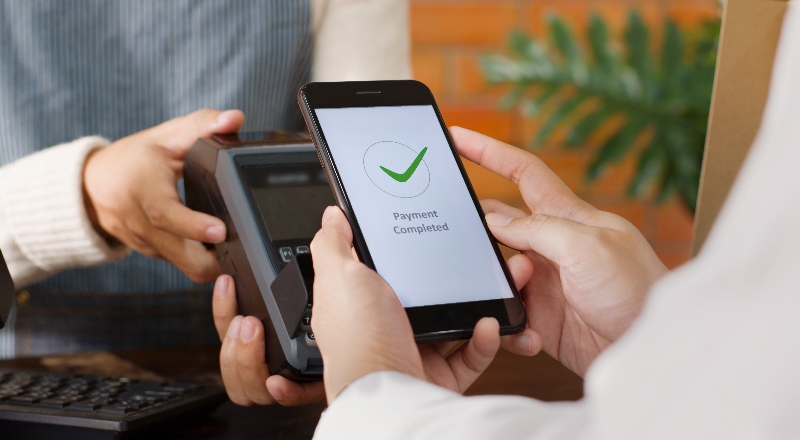
The internet of things – it’s a wonderfully vague term, but one that both consumers and businesses will have been hearing a lot over recent years. IoT is, after all, one of the single biggest areas of technological development that is reshaping the world around us. In short, the umbrella term refers to the way in which devices – everything from smartphones and wearable technologies through to household appliances and cars – communicate and exchange data.
The tech trend has seen previously inanimate objects come to life – they are now able to speak to one another and tell human beings things we previously couldn’t have known. And they are able to do that because since the turn of the century, businesses have been embedding their products with increasingly sophisticated sensors to record all sorts of data.
There are common examples of IoT in our everyday lives. One is the use of voice-activated devices like the Amazon Echo, which can connect with and control other pieces of hardware; it can turn the kettle on, for instance, or turn the lights off. Similarly, households or businesses can use smartphone apps to monitor energy usage, enabling them to control lighting and heating remotely at any time, and in turn allow the user to save money.
Entrepreneurs must take note
The opportunities IoT presents to start-ups are numerous. As such, fledging entrepreneurs – including individuals who are only just beginning to cultivate ambitions of starting their own business – must ensure they understand how the increasing interconnectedness of technology today can open up new ways to make better products, improve the delivery of services, or enhance internal operations.
To put the growth of this market into perspective, a report from BI Intelligence this year projected that there will be more than 55 billion IoT devices by 2025, up from approximately 9 billion in 2017. Furthermore, it forecasts that there is going to be nearly $15 trillion worth of investment into IoT technologies between 2017 and 2025.
Thankfully, due to the proliferation of technologies like smart devices, cloud computing and big data – not to mention the greater affordability of the all-important sensors being implanted into hardware – IoT is not the reserve of large companies. Indeed, this perfect storm of advancements in the digital sector has meant that start-ups can become more competitive thanks to the internet of things.
Feeding innovation
The single greatest advantage of IoT is the way it supports innovation. First and foremost, it does this by relaying information about a product’s performance in the real world.
Take the example of a new car, which is laden with microchips and sensors. Both the owner and the manufacturer stand to benefit from the data that is transmitted from the vehicle. On the one hand, the driver can more accurately detect any problems that may occur within the car and either make manual adjustments or take it to a garage to be repaired.
Simultaneously, every time the car goes into a garage, the data can be transferred back to the manufacturer so they can detect any common trends or issues relating to how the car is performing on the road. Such insights can dramatically improve the R&D process for future iterations of that same vehicle or newer models.
Of course, data about how the owner is driving the car – the number of hours they spend behind the wheel, how quickly they accelerate, what their average speed is – can also be used by insurance companies to provide more tailored, bespoke quotes. The car can even communicate with the owner’s home so, for example, external lights are turned on or a garage door opens as the vehicle approaches the property. As you can see, the benefits grow.
That is just one of the more obvious examples of IoT in action. Elsewhere you can get toothbrushes that monitor how effective someone’s dental hygiene is and make this information available via an app; you have sensors within car parks that can tell drivers where available spaces are; and you are able to use your smartphone to control a plethora of other pieces of hardware in your home.
Ultimately, the vast quantities of data spilling out of the electronic devices all around us can enable entrepreneurs to make better, faster and more informed decisions. As long as said data is collected, analysed and visualised in the right way, IoT is creating a repeating loop of innovation – it is enabling us to make products that are capable of far more than they ever have been before, but it is also allowing us to make products that tell us precisely how they can be improved.
No longer a ‘nice to have’
Anybody who is either in the process of starting a business or is considering launching a business in the future must look to embrace the internet of things. Virtually all start-ups today are built around technology, even if it is not actually a tech product or service they are offering; but the scope for innovation and the competitive advantage on offer through interconnected devices is too large to ignore.
I have spent years working with people who have brilliant ideas for new ventures. Through this, I have seen first-hand how important it is for start-ups to effectively embrace and integrate new technologies such as IoT from the outset. Doing so ensures they are ideally positioned to benefit from the latest innovations and deliver a product or service that readily takes advantage of existing technology.
♣♣♣
Notes:
- The post gives the views of its author(s), not the position of LSE Business Review or the London School of Economics.
- Featured image credit: Image by geralt, under a CC0 licence
- When you leave a comment, you’re agreeing to our Comment Policy.
 Ritam Gandhi is the director and founder of Studio Graphene, which designs and builds tech products for clients. He worked as a consultant for a decade for Accenture and Bank of America Merrill Lynch. Ritam got his BSc in Management Services from LSE in 2006.
Ritam Gandhi is the director and founder of Studio Graphene, which designs and builds tech products for clients. He worked as a consultant for a decade for Accenture and Bank of America Merrill Lynch. Ritam got his BSc in Management Services from LSE in 2006.





